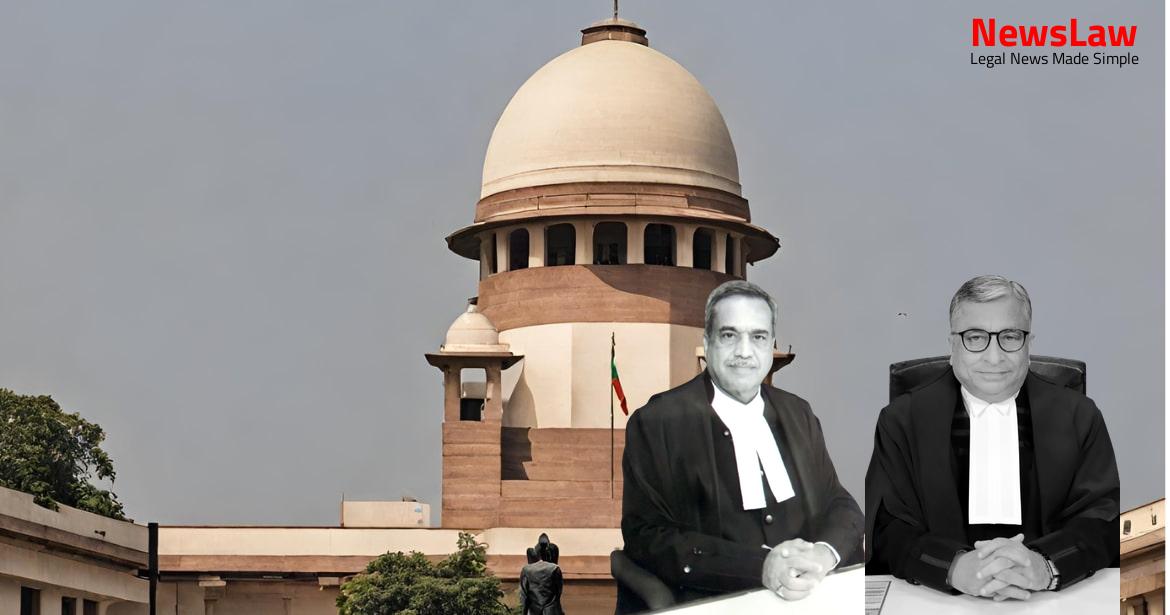In a significant legal battle regarding the selection of City Managers, the Supreme Court of India has ruled in the case involving City Manager Selection Dispute. The dispute centered around the criteria for selection laid out in Rules 2014 versus an executive order dated 16.07.2007. The judgment in favor of the first respondent highlights the importance of adhering to statutory regulations over executive decisions. This case sets a precedent for future recruitment processes. Follow this blog to delve deeper into the legal intricacies of this case.
Facts
- The appellant Commission relied on an Executive Order from 2007 regarding minimum qualifying marks for competitive examinations.
- Minimum qualifying marks are only applicable to the written test and once qualified, candidates should be considered for the merit list.
- Candidates who pass the written test cannot be excluded from consideration based on additional qualifying marks.
- The appeals challenge the validity of a judgment from December 2022 by the Patna High Court.
- The issue concerns the selection and appointment of City Managers in Bihar, governed by specific rules.
- Rule 5 of the Rules 2014 outlines the process of recruitment, appointment, and the procedure for direct recruitment through a written examination.
- Under the advertisement, Original Name, who had no prior work experience, achieved 22.575 marks out of 70 in the written examination for the post of City Manager.
- The Court directed the respondents to consider Original Name’s case for appointment against the post of City Manager based on qualifying marks in the written test and to prepare a merit list.
- The advertisement outlined the vacancy information, eligibility criteria, and selection procedure for the appointment of City Managers.
- The selection process included preparation of a merit list based on the written examination and experience for candidates working on contract.
- The minimum qualifying marks in the written test were 32%, with Original Name scoring 22.5 out of 70, which was above the minimum requirement.
- Original Name approached the High Court seeking intervention to be called for counselling as she met the qualifications and secured more marks than the prescribed qualifying marks for the written test.
- The High Court allowed the Writ Petition, stating that a total of 100 marks would be determined for direct Recruitment.
- Original Name’s total score of 22.5 out of 100 was below the minimum 32% requirement.
- There was a contention regarding the interpretation of the minimum 32% requirement mentioned in the advertisement, specifically for the written test.
- The reason for original name being declared unsuccessful was her failure to meet the 32% qualifying mark in the written test and obtaining 0 marks for work experience due to lack of prior experience.
- Original Name sought quashing of the communication declaring her unsuccessful and requested directions for her appointment.
- The appointment process included determining a total of 100 marks, with 70 marks for the written examination and the remaining 30 marks for experience, with the Commission making the final decision in consultation with the department.
- The appellants filed L.P.A. No 412/2021 before the Division Bench to challenge the High Court’s judgment.
Also Read: Supreme Court Judgment: Sanjay Maruti Jadhav Vs. Amit Tatoba sawant on Illegal Eviction Case
Issue
- The core issue in this case is whether the Commission erred in considering the criteria outlined in the executive order of 16.07.2007 for the position of City Manager.
- The first respondent was an unsuccessful candidate for the City Manager post and has approached the Court challenging the Commission’s decision.
Also Read: State of Odisha vs. M/s Millan Developer and Builders Pvt. Ltd.: Land Fraud Conspiracy Case
Analysis
- The Executive Order of 2007 predates the Rules of 2014 and cannot supplant them.
- Rules 2014 do not mention any minimum qualifying marks out of 100 marks.
- The appellant’s argument of using the Executive Order to clear doubts in Rules 2014 is not valid.
- Candidates scoring 32% in the written test are considered eligible for the City Manager post.
- Merit list preparation involves considering both written test marks and experience.
- Minimum qualifying marks are only relevant for the written test and not for the final merit list.
- The Division Bench correctly upheld the judgment of the Single Judge.
- The Executive Order of 2007 does not provide clarifications for the Rules of 2014.
- The impugned judgment is found to be justified and warrants no interference.
- The judgment in the case of Employees’ State Insurance Corporation vs Union of India & Ors. is being relied upon by the appellants.
- It is argued that this judgment is not applicable to the facts of the present case.
- The appellants believe that the principles or rulings laid down in the mentioned case are not relevant or do not hold in the context of this case.
- The appellants were wrong in denying her a place on the merit list.
- The impugned judgment does not require any interference.
- Statutory regulations will prevail over executive decisions.
Also Read: Judgment by Supreme Court of India in the Criminal Appeals of Chandra Kumar and Rishi Kumar
Decision
- The High Court’s decision in the present case gives primacy to the Rules 2014 over an earlier executive decision dated 16.07.2007.
- The judgement is in favor of Original Name as Original Name received 22.5 marks out of 70, which is 32.14%, above the minimum qualifying marks of 32% as per the advertisement.
Case Title: BIHAR STAFF SELECTION COMMISSION Vs. HIMAL KUMARI (2024 INSC 531)
Case Number: C.A. No.-007815-007816 – 2024



